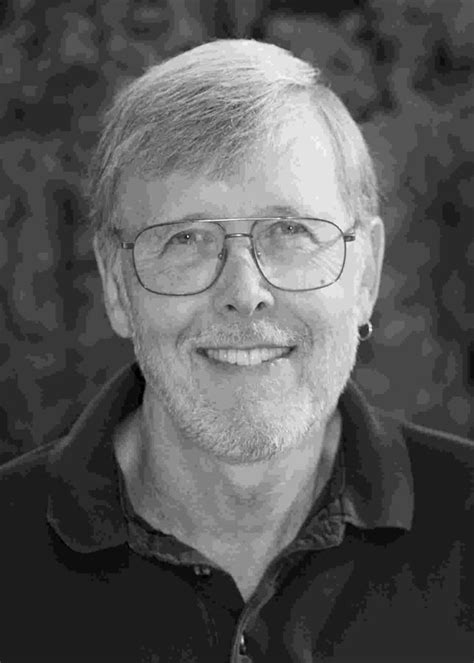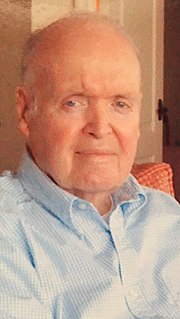A Quote by Steven Pressfield
The Gnostics believed that exile was the essential condition of man. Do you agree? I do. The artist and the addict both wrestle with this experience of exile. They share an acute, even excruciating sensitivity to the state of separation and isolation, and both actively seek a way to overcome it, to transcend it, or at least to make the pain go away. What is the pain of being human? It's the condition of being suspended between two worlds and being unable to fully enter into either.
Quote Topics
Actively
Acute
Addict
Agree
Artist
Away
Being
Being Human
Believed
Between
Both
Condition
Either
Enter
Essential
Even
Excruciating
Exile
Experience
Fully
Go
Go Away
Human
Isolation
Least
Make
Man
Overcome
Pain
Seek
Sensitivity
Separation
Share
State
Suspended
Transcend
Two
Two Worlds
Unable
Way
Worlds
Wrestle
Related Quotes
exile is strangely compelling to think about but terrible to experience. It is the unhealable rift forced between a human being and a native place, between the self and its true home: its essential sadness can never be surmounted. And while it is true that literature and history contain heroic, romantic, glorious, even triumphant episodes in an exile’s life, these are no more than efforts meant to overcome the crippling sorrow of estrangement.
If there is anything good about exile, it is that it teaches one humility. It accelerates one’s drift into isolation, an absolute perspective. Into the condition at which all one is left with is oneself and one’s language, with nobody or nothing in between. Exile brings you overnight where it would normally take a lifetime to go.
In the central cases of physical pain, then, it appears that at least part of what is bad about our condition is the way it makes us feel. Here there seem to be no problems with a purely mental state account, no counterpart to the experience machine that could bring us to think that we are being deceived by mere appearances. [...] If I am suffering physical pain then I can be quite wrong about the organic cause of my affliction, or even about whether it has one, without that error diminishing in the slightest either the reality of my pain or its impact on the quality of my life.
Literature gives us models of living human beings who may not agree with us and even be our enemies. D. H. Lawrence said that the purpose of literature was to expand our sympathies. To be a human being is to be in a state of tension between your appetites and your dreams, and the social realities around you and your obligations to your fellow man. And this conflict cannot be easily reconciled. The tension is always there as a kind of a pain in the human condition.
Probably all of us, writers and readers alike, set out into exile, or at least into a certain kind of exile, when we leave childhood behind...The immigrant, the nomad, the traveler, the sleepwalker all exist, but not the exile, since every writer becomes an exile simply by venturing into literature, and every reader becomes an exile simply by opening a book.
If we are to understand the human condition, and if we are to accept ourselves in all the complexity, self-doubt, extravagance of feeling, guilt, joy, the slow freeing of the self to its full capacity for action and creation, both as human being and as artist, we have to know all we can about each other, and we have to be willing to go naked.
To see and feel one's beloved naked for the first time is one of life's pure, irreducible epiphanies. If there is a true religion in the universe, it must include that truth of contact or be forever hollow. To make love to the one true person who deserves that love is one of the few absolute rewards of being a human being, balancing all of the pain, loss, awkwardness, loneliness, idiocy, compromise, and clumsiness that go with the human condition. To make love to the right person makes up for a lot of mistakes.
Compassion asks us to go where it hurts, to enter into the places of pain, to share in brokenness, fear, confusion, and anguish. Compassion challenges us to cry out with those in misery, to mourn with those who are lonely, to weep with those in tears. Compassion requires us to be weak with the weak, vulnerable with the vulnerable, and powerless with the powerless. Compassion means full immersion in the condition of being human.
Unless a man has pity he is not truly a man. If a man has not wept at the worlds pain he is only half a man, and there will always be pain in the world, knowing this does not mean that a man shall dispair. A good man will seek to take pain out of things. A foolish man will not even notice it, except in himself, and the poor unfortunate evil man will drive pain deeper into things and spread it about wherever he goes.
The mystery of being human and, certainly, of being a Catholic lies in our embracing together the imperfect state known as the human condition. First and foremost, if we could ever be perfect or do things perfectly, we would eliminate mystery, an essential ingredient in the good life and the spiritual life.



































